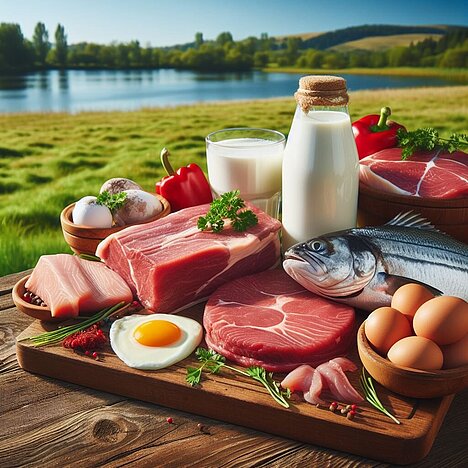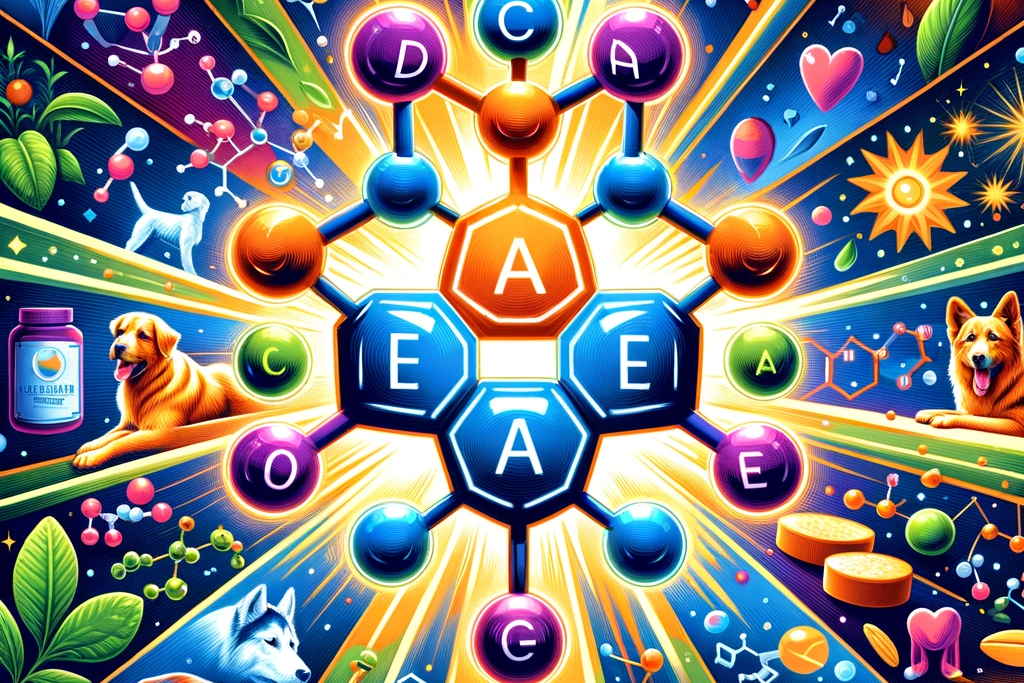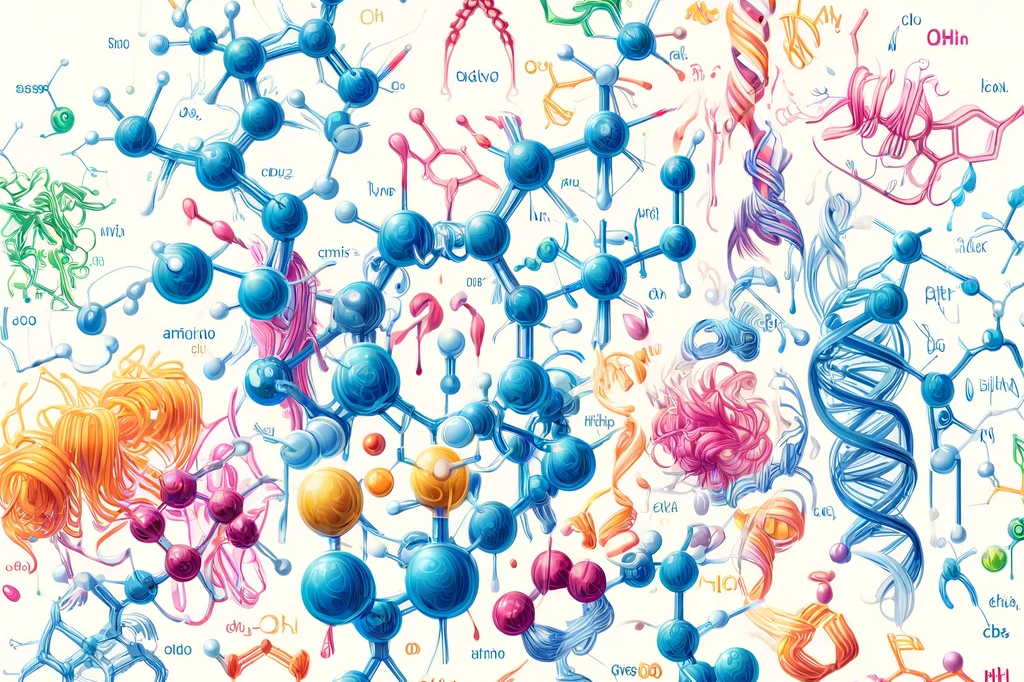Alanine

What is alanine?
Alanine is one of the so-called non-essential amino acids, which means that the body can produce it itself and does not have to absorb it from food. Alanine is mainly formed in the liver from other amino acids or from glucose. From there it enters the blood and is transported to various organs where it fulfills different functions.
What functions does alanine have in the body?
Alanine has several important functions in your dog's body:
- It is involved in protein synthesis, i.e. building up the body's own proteins, which are important for many structures and processes in the organism.
- It is an important source of energy for muscle cells, brain cells and other tissues, especially in times of stress, hunger or physical exertion.
- It is involved in gluconeogenesis, i.e. the formation of glucose from non-carbohydrate sources such as amino acids or lactate. This is important to keep blood sugar levels constant and prevent hypoglycemia.
- It is involved in the formation of urea, i.e. the removal of excess nitrogen from the body. This is important to prevent poisoning from ammonia, which is produced during protein digestion.
- It is involved in the formation of other amino acids, such as arginine or carnitine.
How much alanine does my dog need?
The exact requirement of alanine for dogs is not known, as it is a non-essential amino acid that the body can produce itself. However, in certain situations there may be an increased need or a deficiency of alanine, e.g. in the case of:
- Liver disease, which impairs the synthesis of alanine
- Kidney failure, which impedes the excretion of urea
- Diabetes mellitus, which increases the blood sugar level
- Stress, hunger or physical exertion, which increase energy requirements
In such cases, it may be useful to provide the dog with additional alanine to support its health.
How can I provide my dog with alanine?
Alanine is found in many protein-rich foods, such as meat, fish, eggs and dairy products. If you provide your dog with a balanced diet with high-quality protein sources, he should be able to get enough alanine from his food.
However, there are also special food supplements for dogs that contain alanine. These can be administered in the form of tablets, powder or liquid. They can be particularly helpful for dogs with liver or kidney disease to improve their organ function.
What are the advantages and disadvantages of alanine supplementation?
Supplementing with alanine can have several benefits for your dog:
- It can improve your dog's performance and endurance by providing them with more energy.
- It can promote your dog's recovery and healing by supporting protein synthesis.
- It can improve your dog's liver and kidney function by promoting urea formation and gluconeogenesis.
However, supplementing with alanine can also have some disadvantages:
- It can lead to overdosing or intolerance if you give your dog too much alanine or if he has an allergy or sensitivity to alanine.
- It may interact with other medications or supplements your dog is taking, e.g. insulin or antidiabetics.
- It can lead to an imbalance in your dog's amino acid balance if you give him too much alanine in relation to other amino acids.
Alanine is an important amino acid for your dog, which he needs for various metabolic processes. It can produce alanine itself, but in some situations there may be an increased need or a deficiency. In such cases, supplementation with alanine can be useful to support your dog's health. However, you should always make sure that you do not give your dog too much alanine and that you have him checked regularly by the vet to check his liver and kidney status.
Properties 5
Are you looking for other ingredients with a specific property?
Just click on them to find more.
If you notice any signs of hypersensitivity or poisoning in your dog, you should see your vet immediately. We are not a substitute for a vet, but we try to be as accurate as possible. Every dog reacts differently and we recommend you get a second opinion or consult your vet if in doubt.
Stay healthy and take good care of your four-legged friend!😊
Similar to Alanine
Glycine is the smallest and simplest amino acid there is. It has the chemical formula C2H5NO2 and is non-chiral, i.e. it has no dextrorotatory or levorotatory form. Glycine is non-essential, which...
Valine is one of the essential amino acids, which means that it is vital for dogs but cannot be produced by the body itself. Valine must therefore be ingested through food. As one of the three...
Leucine is one of the branched-chain amino acids (BCAAs) that are essential for protein biosynthesis in the body. It cannot be produced by the body itself and must therefore be obtained from food....
Isoleucine is one of nine essential amino acids that the body can neither produce nor replace. It must therefore be obtained from food. Isoleucine is known for its role in muscle metabolism and...



